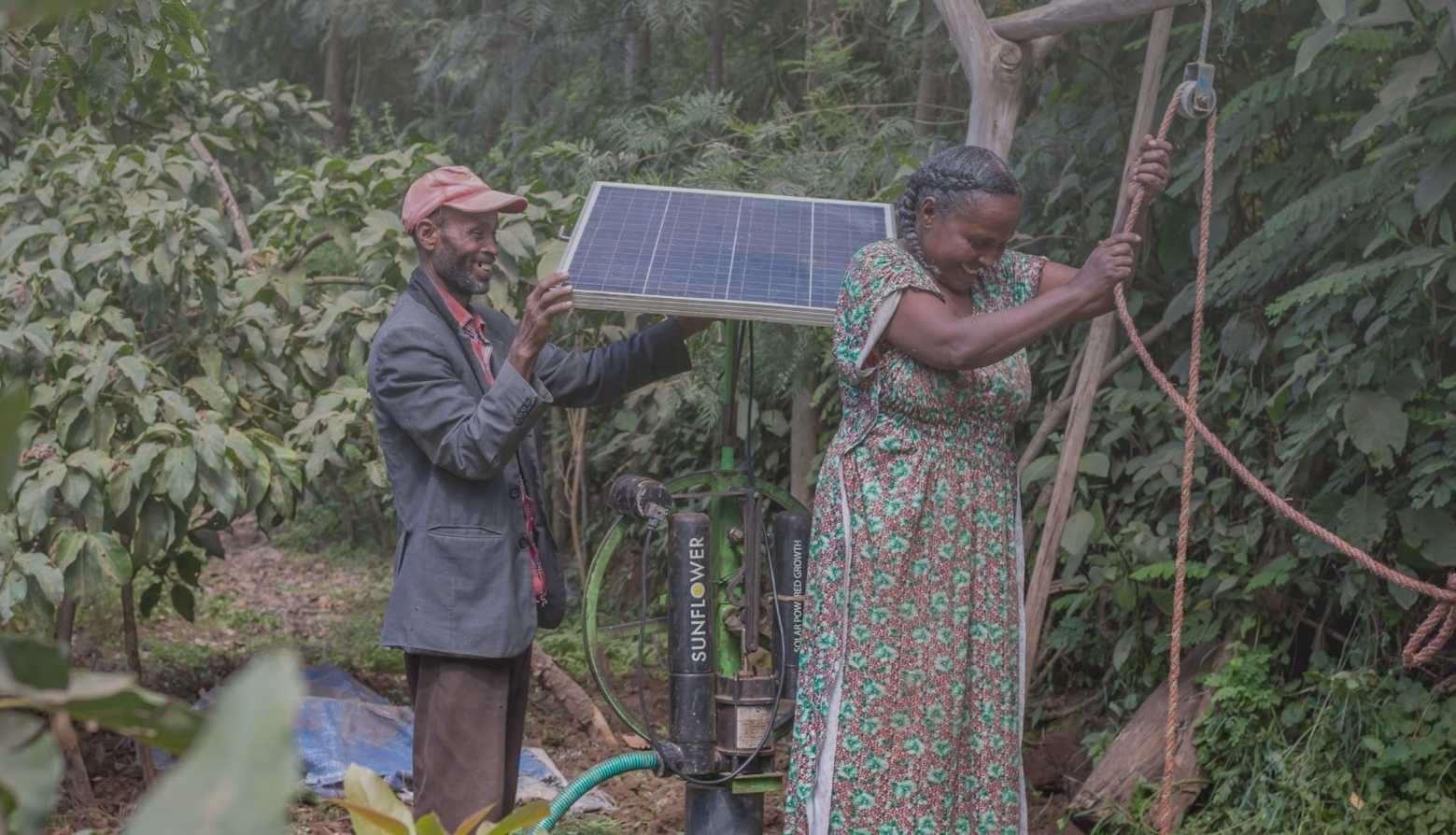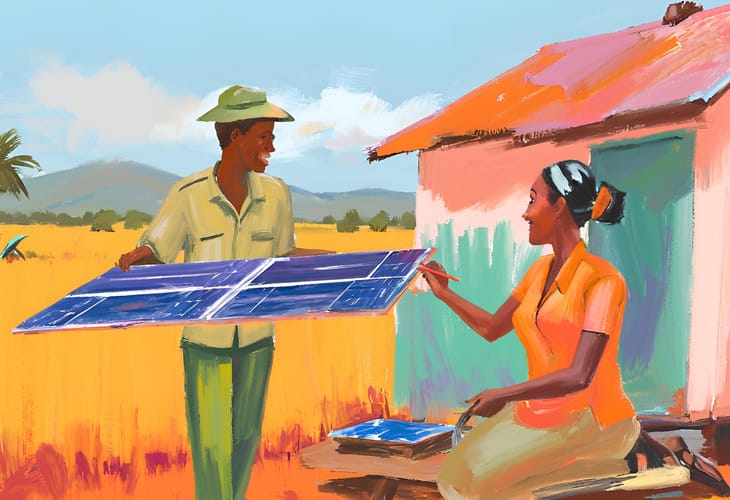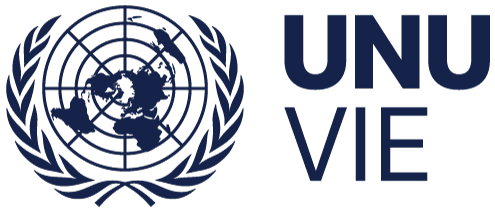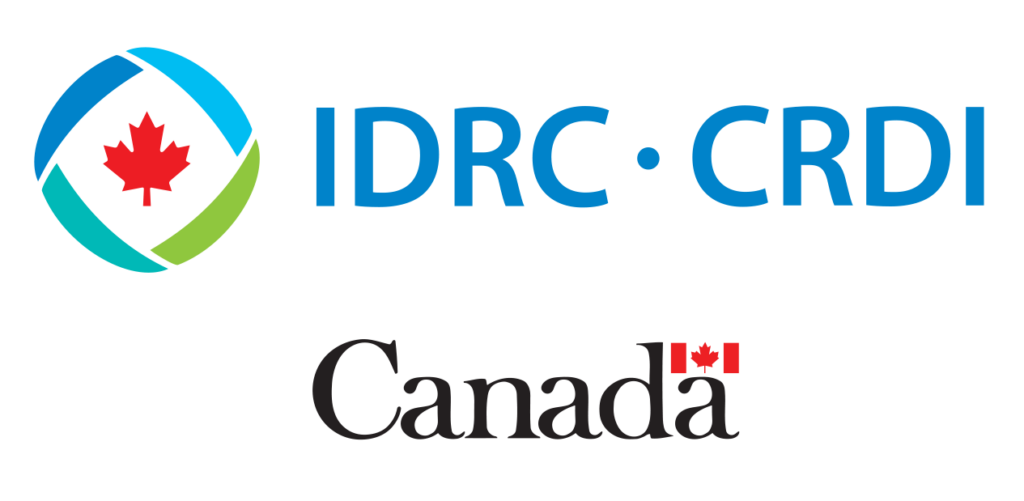
Global South Just Energy Transition
Community of Practice
by Impulsouth
Photo © Mulugeta Ayene/WLE
Applications are open!
Are you researching how innovation can accelerate the adoption of renewable energy technologies (RETs) among vulnerable groups in the Global South?
Impulsouth initiative is looking for case studies on innovations that help scale renewable energy technologies in LAC and Sub-Saharan Africa.
Community of Practice
Impulsouth enhances the impact of capacity-building initiatives through an active, policy-oriented, and sustainable Community of Practice (CoP). Co-designed with capacity builders, this CoP features its own governance structure to foster virtual exchanges and develop and replicate a Training of Trainers (ToT) program. The CoP brings together universities, NGOs, enterprise support organizations, sectoral associations, and regional and international policy technical associations to strengthen their role in a just and equitable energy transition.
Open-access platform
Impulsouth amplifies South-South learning on capacity building by facilitating knowledge sharing through an open-access platform. This platform serves as a hub for exchanging information within the Community of Practice (CoP) and connecting with a broader network, fostering collaboration and the dissemination of best practices.
Global Exchange
Impulsouth implements a global dialogue strategy to inform policymakers and issue recommendations developed by the Community of Practice (CoP). The CoP shares lessons and works closely with Action for Climate Empowerment (ACE) focal points to ensure that its insights and recommendations are effectively communicated and drive meaningful policy action.
About the Global South Just Energy Transition Community of Practice
The Global South Just Energy Transition Community of Practice (CoP) is a collaborative space designed to strengthen capacities in the energy sector to promote an energy transition that is just and inclusive, especially in terms of gender.
CoP Objectives
- Address capacity needs and gaps in the energy sector with a gender-transformative approach, ensuring active and meaningful participation of women in decision-making processes.
- Collaborate with a wide range of actors at national, regional and international levels to strengthen capacities for a gender-just energy transition.
- Promote knowledge sharing and collective learning across the Global South to influence energy and climate policy through peer-to-peer exchanges, enhanced by an open-access platform and a global dialogue strategy to influence energy and climate policy.
CoP Characteristics
- Composed of organizations from five main target groups (Universities, NGOs, Enterprise Support Organizations, Sectoral Associations, and Regional and International Organizations) from Bolivia, Cameroon, Côte d’Ivoire, Dominican Republic, Ecuador, Guatemala, Madagascar, Uganda, Zambia, which each play a critical role in capacity building for a just energy transition.
- Guided by peer learning across regions with a focus on aligning with policy priorities.
- Inclusive design and implementation, ensuring active involvement of women in all stages.
- Integrated virtual open-access platform to support South-South knowledge sharing and capacity building.
- Incorporates a Training of Trainers (ToT) course, designed collaboratively with stakeholder groups and energy and gender experts.
CoP Benefits
- Participation in a global dialogue strategy to influence national and international policy on energy transition.
- Chance to take part in the Training of Trainers (ToT) program, with content tailored to specific stakeholder needs and a focus on gender transformation.
- Elegibility to apply for small grants and awards to support capacity building initiatives and innovative trainee-led solutions.
- Opportunity to network and collaborate with key stakeholders across the Global South.
- Access to an open-access platform, increasing the reach and impact of capacity building efforts.

About Impulsouth
Impulsouth is a collaborative initiative that has been working since 2021 to enhance knowledge and capacity for climate action in Africa and the LAC region.
Find out more: https://impulsouth.org/
The governance of Impulsouth involves Fundación Avina and the United Nations University – Vice-Rectorate in Europe (UNU-VIE) as implementing partners, with funding provided by the International Development Research Centre (IDRC-CRDI):



